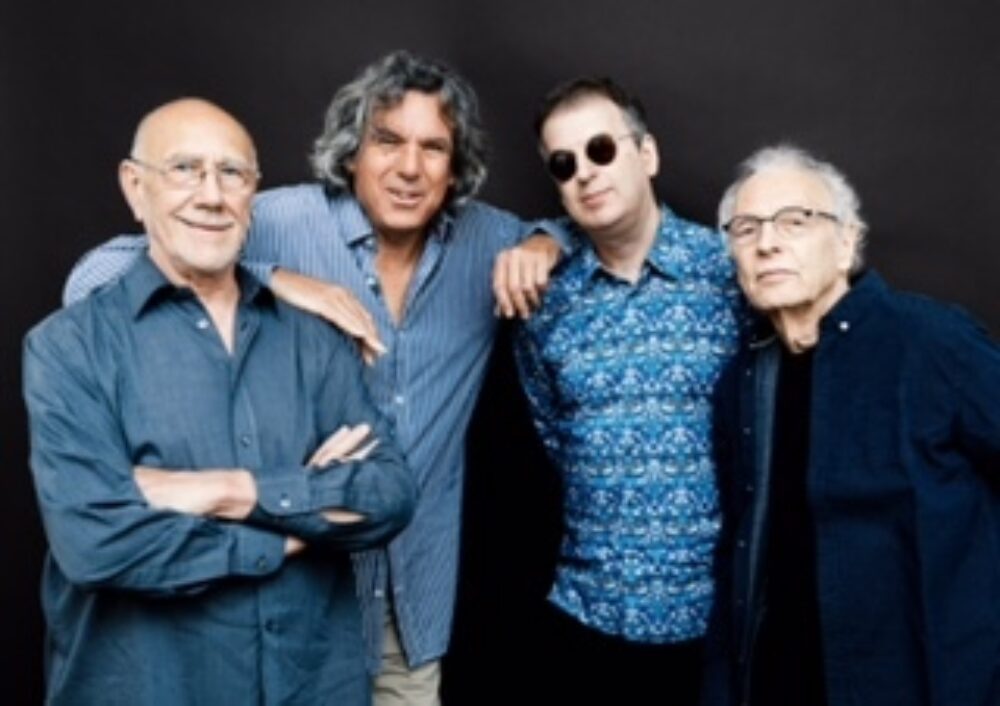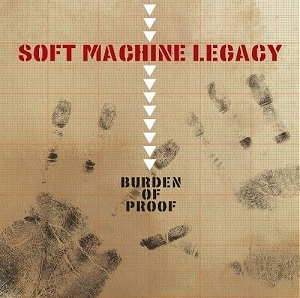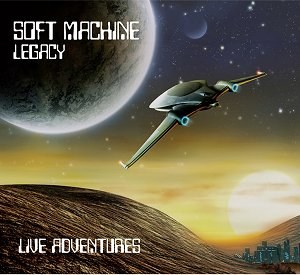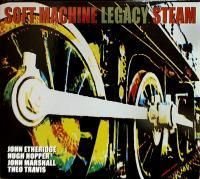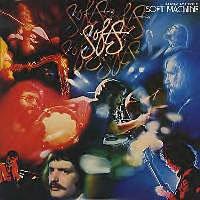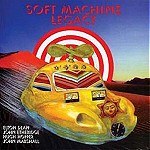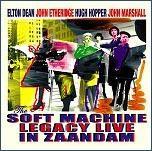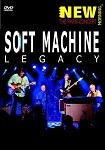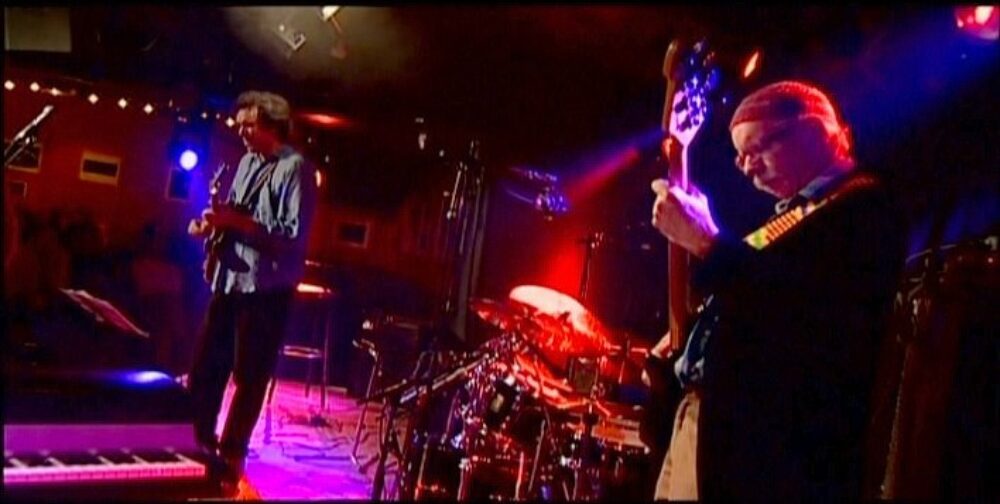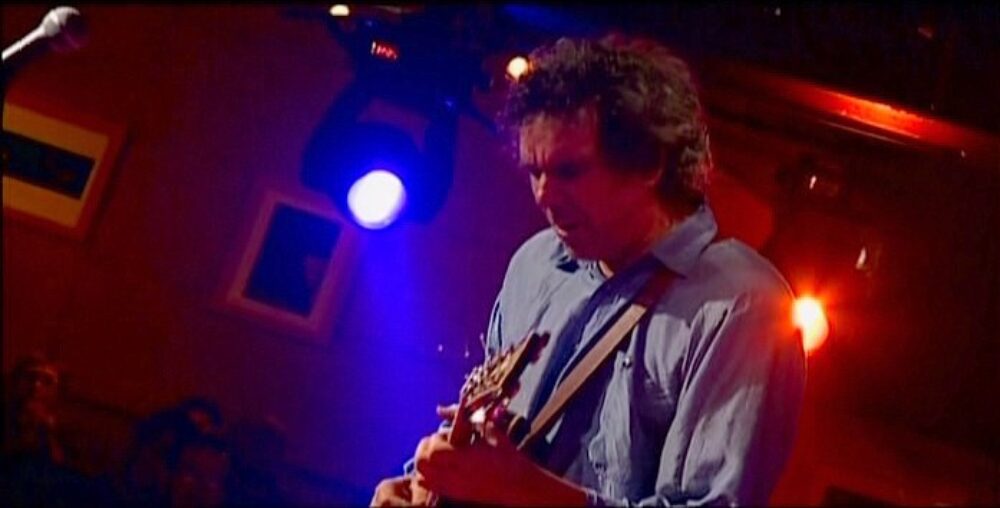Soft Machine
Soft Machine
John Etheridge – guitar
Theo Travis - tenor sax, flute, keyboards
Roy Babbington - bass
John Marshall - drums
Soft Machine is one of the greatest UK avant/jazz-rock bands of all time. Their work, from their earliest performances as a psychedelic band, who were contemporaries of, and shared stages with Syd Barrett's Pink Floyd and the Jimi Hendrix Experience, all the way to being one of Europe's best known 'fusion' bands has influenced several generations of bands, and continues to be name-checked by today's hip experimentalists.
Hidden Details’, released in 2018, exactly 50 years since the release of the band’s 1968 debut album ‘The Soft Machine’.>span class="Apple-converted-space">
Whilst the line-up of Soft Machine may have changed many times since the heady days of the late 1960’s, the band’s spirit of musical adventure, and the ease with which it freely avoids being pigeon holed and can move from powerful progressive jazz fusion to atmospheric psychedelia to free improvised jazz-rock to ambient loop music continues to make it both unique and totally contemporary.
"Soft Machine were the grooviest, coolest psychedelic band of the era..." - Phil Manzanera
"Soft Machine...certainly rank among the most influencial 'out' rock bands." – Dusted
"Burden of Proof is, to put it mildly, absolutely exquisite. These are four musicians who are masters of their craft, and truly at the top of their game, not only as soloists but as contributors in an actual band. They've put together here a collection of songs that basically has something for everyone; challenging jazz-fusion, adventurous prog-rock, bits of chaotic free-jazz, atmospheric instrumental pop-jazz, and even a little hard rock. Extraordinary!" - 5 stars. Pete Pardo. Sea Of Tranquility.org
"No band of this vintage have any right to still sound so fearless and ferocious. Don't miss them." - David West, Prog Magazine

"Soft Machine Legacy" was launched in Turkey in Oct, 2004. The intriguing line-up of Elton Dean, Hugh Hopper, John Etheridge and John Marshall was a coalition of 4 long-time servers in different eras of the legendary group Soft Machine, but who had not played before as a unit. With the enthusiastic management of MoonJune in New York - the band quickly established a recording and touring schedule in Europe playing a repertoire of new originals and some vintage pieces. Highlights including appearances at the Umbria Jazz Festival and Leverkusen Jazz Festival (televised).
In 2006 came the sad death of Elton Dean, whose place was taken by young blood Theo Travis, who has a continuing association with Progressive Bands and Artists such as Gong, Robert Fripp, David Gilmour and Steven Wilson and was thus perfectly sympathetic to the music.
After a long illness Hugh Hopper sadly passed away in 2008. A decision was taken to continue with Roy Babbington - thus reuniting 3/5ths of the 1975-77 line up that recorded the acclaimed "Softs" album
The beauty of Soft Machine Legacy– and of Soft Machine, the band – is that nearly a half-century after the original group’s inception, that legacy is far from stagnant but continues to evolve to this day. Ever since Soft Machine was first formed, the group has amply demonstrated that it is no mere exercise in nostalgia, lazily mining the Soft Machine back catalog; instead, SML has admirably carried the parent group’s spirit of inquiry and exceptional standard of musical excellence forward into the present.
Just as the original Soft Machine was in a state of continual metamorphosis in terms of both personnel and musical approach – shape-shifting over time from a psychedelic pop band, to a proto–prog rock outfit, to pioneers of adventurous jazz-rock fusion, and ranging from trio to septet configurations – Soft Machine has been in constant flux as members have come and gone, each new arrival placing his distinctive stamp on this musical work in progress. It is a tribute to the open-ended nature of Soft Machine’s ingenious compositional frameworks that they can accommodate such a wide range of strong musical personalities.
Since 2016 the band formerly known as Soft Machine Legacy was from then on rightfully called ‘Soft Machine’. The Legacy tag, never in fact legally required, was officially been dropped. This is Soft Machine - a living, breathing music that is as vital and relevant today as it ever was. Both longtime fans and new converts alike can take heart in the knowledge that the Soft Machine family tree -- with its deep roots in the musical revolution of the ‘60s -- continues to sprout healthy new limbs well into the new century, showing no signs of slowing. ... The legacy is in very good hands, indeed.
thebluemoment.com
'Soft Machine Today' - Richard Williams
It’s many years since, to all intents and purposes, I lost interest in the Soft Machine. One by one, the early members — Daevid Allen, Kevin Ayers, Robert Wyatt, Mike Ratledge, Hugh Hopper — dropped away, taking their various eccentricities and my enthusiasm with them. Left behind was a constantly shifting corpus of musicians who, for all their individual qualities, didn’t seem to amount to much more than just another jazz-rock band, taking advantage of the mileage left in the name.
And it’s the old conundrum, going back to Theseus’s ship or the woodsman’s axe. Or whichever football club you happen to support. If, over the years, all the components are replaced, is it the same ship, axe or football club? So when the latest album by the group currently calling itself Soft Machine arrived in the post, I played it out of nothing more mild curiosity, prepared to hit the eject button as soon as the twiddling-and-noodling quotient was exceeded. To my surprise, I found myself listening all the way through with increasing interest and enjoyment. And then playing it again. For the past couple of weeks it’s been a fairly constant companion.
It’s a live set, recorded in February 2019 by the present line-up — John Marshall on drums, Roy Babbington on bass guitar, John Etheridge on guitar and Theo Travis on soprano and tenor saxophones, flute and Fender Rhodes piano — at a Los Angeles jazz club called the Baked Potato, located on Cahuenga Boulevard, just the other side of the Hollywood Freeway from Universal Studios, and owned by the pianist Don Randi, once of the Wrecking Crew. The Softs’ changes of personnel over the decades would challenge even Pete Frame, compiler of all those celebrated Rock Family Trees. For those who haven’t been keeping up, it’s enough to mention that Marshall joined in 1972, replacing Phil Howard, who had replaced Wyatt in 1970; Babbington arrived as Hopper’s replacement the following year; Etheridge joined in 2004 (see note **), and Travis two years later. In the past, I believe, there have been problems over the use of the name; until quite recently they were unappetisingly billed as Soft Machine Legacy.
The set list is a good mixture of ancient and modern, beginning with Ratledge’s “Out-Bloody-Rageous” (first heard on Third in 1970), given a keyboard intro by Travis which recalls the Softs’ early interest in Terry Riley’s keyboard improvisations. Ratledge’s more fusion-y “The Man Who Waved at Trains” is also present, as is Hopper’s moody “Kings and Queens”, a feature for Travis’s attractively Charles Lloydish flute. The Karl Jenkins era is represented by “Hazard Profile Pt 1” and “The Tale of Taliesin”, both reminders of how effective a musical organiser the Welshman could be in this kind of context.
Marshall contributes “Sideburn”, a two-minute drum solo showing the fine touch he always possessed, and there are two pieces from Etheridge and three from Travis, mostly operating in stylistic terms within a triangle formed by the Mahavishnu Orchestra, mid-’70s King Crimson and the Pat Metheny Group. Which is where I would normally take my leave, except that here there’s no sense of the sort of selfindulgence to which so many excellent musicians — particularly guitarists — were prone during the bad old days of the jazz-rock fusion.
All the pieces here are concise and well formed, and all the solos have substance. Etheridge’s “Heart Off Guard” is another vignette: a gentle study for guitar and soprano that slides into his lovely “Broken Hill”. His solo on the circling and rising chord pattern of “Hazard Profile” is genuinely lyrical and emotionally involving.
Travis’s flute is again outstanding on his own “Fourteen Hour Dream” (its title surely a nod to the group’s origins in London’s psychedelic scene), where the supportive excellence of Babbington also takes the ear.
So there it is. There may be no pataphysical ramblings or “Moon in June”-style fantasias emanating from this group trading under the hallowed name, nor a sense of a continuing need to stretch boundaries, but it’s a pleasure to discover that I was wrong to write them off. Maybe I’ll have to trawl through their extensive back catalogue from the decades when I was looking the other way. But even if there isn’t time for that, this is a nice surprise.
* The photograph is by Mauricio Alvarado. Live at the Baked Potato is released on Moonjune Records: http://www.moonjune.com or http://www.softmachine.org
** As several people have kindly pointed out, John Etheridge first joined the Softs in
1975, replacing Allan Holdsworth. See? I told you I hadn’t been paying attention.
Video of John's guitar solo for 'Pump Room' with transcription
Pump Room John Etheridge Transcription
Transcription provided by Ruth Wilson Music Transcription
ruthwilsonmusictranscriptions.com
Burden Of Proof
1 ) Burden Of Proof (John Etheridge)
2 ) Voyage Beyond Seven (Theo Travis)
3 ) Kitto (John Etheridge)
4 ) Pie Chart (John Etheridge)
5 ) JSP (John Marshall)
6 ) Kings & Queens (Hugh Hopper)
7 ) Fallout (Theo Travis)
8 ) Going Somewhere Canorous? (Babbington / Marshall)
9 ) Black And Crimson (Theo Travis)
10 ) The Brief (Marshall / Travis)
11 ) Pump Room (John Etheridge)
12 ) Green Cubes (Babbington / Etheridge / Marshall / Travis)
13 ) The Landed On A Hill (Etheridge / Travis)
'Burden of Proof is, to put it mildly, absolutely exquisite. These are four musicians who are masters of their craft, and truly at the top of their game, not only as soloists but as contributors in an actual band. They've put together here a collection of songs that basically has something for everyone; challenging jazz-fusion, adventurous prog-rock, bits of chaotic free-jazz, atmospheric instrumental pop-jazz, and even a little hard rock. Extraordinary!' 5 stars. Pete Pardo, Sea Of Tranquility.org
'Having retired to weigh up the evidence, the jury had been out for all of five minutes when it returned the verdict that the burden of proof is conclusively indicative of a resounding guilty; guilty of making probably the finest progressive jazz-fusion record you will hear this year. In fact, Soft Machine speak in an all-encompassing musical language that goes well beyond pigeonholing, and with Burden Of Proof they have moved on from Steam to become a fully integrated unit with a near psychic understanding of the collective muse. I can say with some confidence that if you are a lover of progressive music you should definitely buy this now!' 9 out of 10. Roger Trenwith, dprp.net
'Despite its monicker, Soft Machine is not a tribute project or an attempt to recreate the music of the 1970s. The music here is fresh, risky, and full of life. If Burden of Proof proves anything, it's that the spirit of exploration in music remains alive and well. Fittingly so, because that's what Soft Machine was all about in the first place.' Dave Wayne, All About Jazz
'Etheridge plays with a biting slightly smoldering tone evoking pre-Mahavishnu John McLaughlin. Travis has a fluid surging wail out of Coltrane, Rollins, and Joe Henderson and the bass and drums team is tight and propulsive as as you're likely to hear this year.' 4 stars. Mark Keresman, Icon Magazine.
'This album, entitled "Burden Of Proof", hits me the hardest. It's so real. Soft Machine create glorious music. The jazz group sound like they're desperate to get their message across.' John Shelton Ivany, jsitop21.com
John Etheridge - Theo Travis - Roy Babbington - John Marshall
"Soft Machine " was launched in Turkey in Oct, 2004. The intriguing line-up of Elton Dean, Hugh Hopper, John Etheridge and John Marshall was a coalition of 4 long-time servers in different eras of the legendary group Soft Machine, but who had not played before as a unit. With the enthusiastic management of MoonJune in New York - the band quickly established a recording an touring schedule in Europe playing a repertoire of new originals and some vintage pieces. Highlights including appearances at the Umbria Jazz Festival and Leverkusen Jazz Festival (televised). In 2006 came the sad death of Elton Dean, whose place was taken by young blood Theo Travis, who has a continuing association with Gong and was thus perfectly sympathetic to the music. After a long illness Hugh Hopper sadly passed away in 2008. A decision was taken to continue with Roy Babbington - thus reuniting 3/5ths of the 1975-77 line up that recorded the acclaimed "Softs" album. (Special thanks to Fred Baker who deputised when Hugh was ill). This is The Soft Machine as it appears now, having completed a month long tour of Europe in Oct 2009, from which ' Live Adventures ' has been recorded. 2010 will also see the reissue of the Soft Machine albums on EMI, Harvest-Bundles, Softs, Alive and Well. Land of Cockayne
1 ) Has Riff 2
2 ) Grapehound
3 ) The Nodder
4 ) In The Back Room
5 ) Song Of Aeolus
6 ) The Relegation Of Pluto / Transit
7 ) Gesolreut
8 ) Face Lift
9 ) The Last Day
Review : seaoftranquility.org LIVE ADVENTURES ***** Recorded at two successive nights on October of 2009 (one night in Austria, the other in Germany), Live Adventures once again sees a revamped Soft Machine after the passing of legendary bassist Hugh Hopper. Just as he did in the 1970's when Hopper left Soft Machine to pursue a solo career and other musical opportunities, veteran bassist Roy Babbington (ex-Nucleus & Keith Tippett Group) has once again stepped into the fold and taken over the bass role, and alongside guitarist John Etheridge, drummer John Marshall, and reed player Theo Travis, the band not only keep the spirit of the original Soft Machine alive, but take their music into this new decade quite nicely. And, it remains a fitting tribute not only to the recently deceased Hopper, but also to Elton Dean as well, who passed away a few years back.
Review : abstractlogix.com On their rousing new live disc for MoonJune (recorded during the European tour in October of 2009), Live Adventures, SML covers more vintage Soft Machine repertoire than on previous releases, yet reinvigorates the tunes by means of fresh arrangements and expansive, protean improvisation. Soft Machine partisans will rejoice at the inclusion of such repertory gems as "Gesolreut", in which the band lays bare the funky heart of its signature elliptical ostinato with steaming soli and propulsive grooves; "As If", an oblique rereading of the Mike Ratledge piece marked by spectral guitar shadings and Travis's shakuhachi-like flute etchings; and the stirring, elegiac "Song of Aeolus". And fittingly, the band pays heartfelt tribute to the dearly departed Hugh Hopper with a rendition of his iconic "Facelift", artfully investigating the intricate twists and turns of its singular long-form melody. This is no potted history of Soft Machine, but a living, breathing music. With Live Adventures, Soft Machine makes a forceful case that the music of Soft Machine is as relevant and ripe with possibility today as it was in the band's heyday. Longtime fans and new converts alike can take heart in the knowledge that the Soft Machine family tree, with its deep roots in the musical revolution of the '60s, continues to sprout new limbs in the new century and shows no signs of slowing. The legacy is in very good hands indeed.
1 ) Footloose
2 ) The Steamer
3 ) The Big Man
4 ) Chloe and the Pirates
5 ) In the Back Room
6 ) The Last Day
7 ) Firefly
8 ) So English
9 ) Dave Acto
10 ) Anything to Anywhere
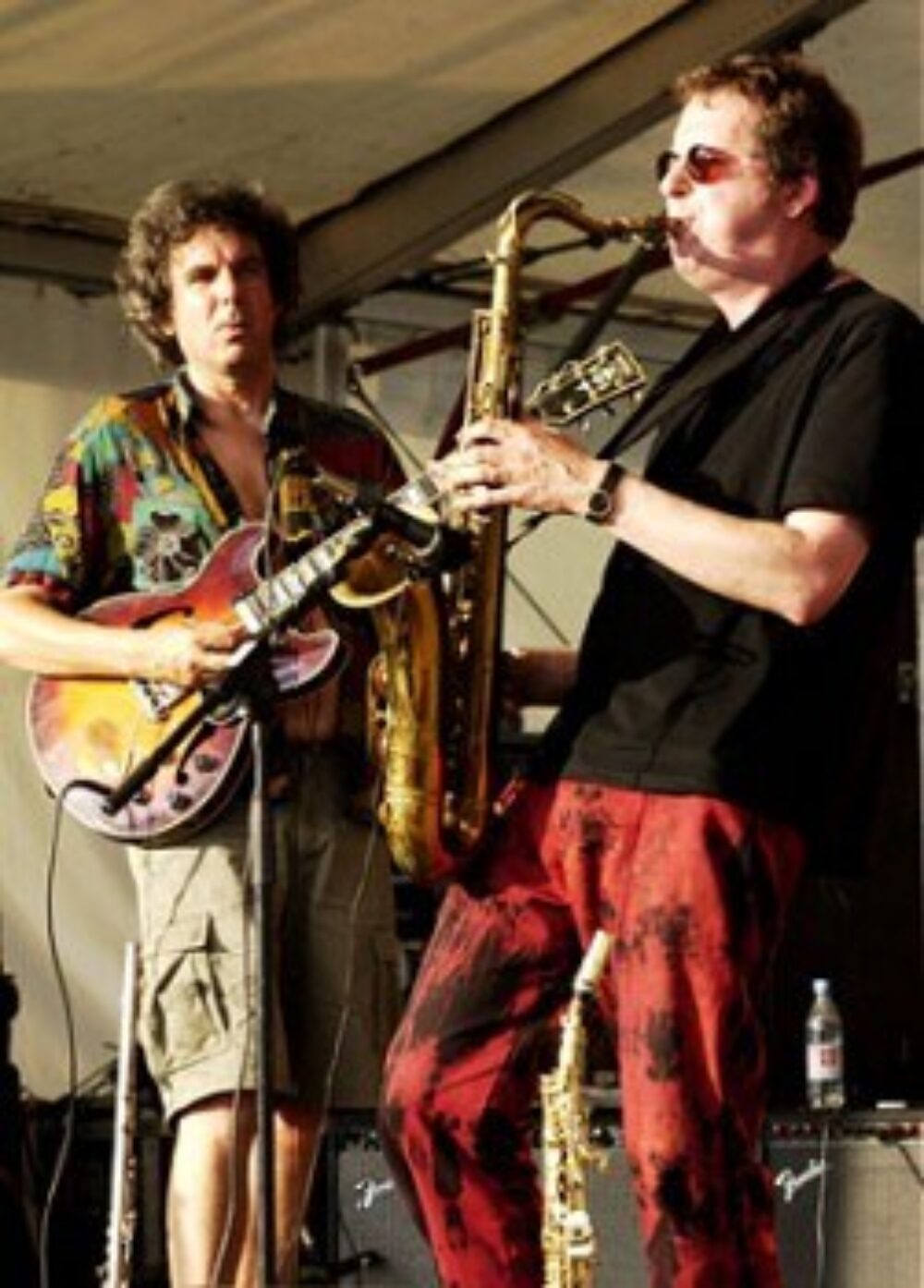
Review :
Chris Parker - vortexjazz.co.uk A real treat, this: three ex-members of various editions of Soft Machine (guitarist John Etheridge, bassist Hugh Hopper, drummer John Marshall) plus long-time admirer Theo Travis (replacing the late great Elton Dean) letting themselves go on ten rousing jazz-rock cuts that are at once recognisably stylistically connected to the music of the original bands, but also thoroughly contemporary (chiefly courtesy of the substitution of loops and sonic processing for keyboards something of a speciality for Travis, as anyone who's witnessed his various Vortex duo performances will know).
The textures created by the contrast between Etheridge's spangly, powerful but delicate guitar playing and Hopper's trademark 'fuzztonics', and between Travis's reeds and flute and Marshall's muscular drumming to name just two are memorable and arresting; what's really impressive, though, is the infectious enthusiasm, joy and sheer energy that infuse everything the band play.
There are glances back into the 1970s (a visit to Mike Ratledge's 'Chloe & the Pirates'), but overall, as the (excellent and informative) press release claims MoonJune Records is 'a one-man army represented by an Italo-Montenegrian [Leonardo Pavkovic] from New York who especially loves British music', and he writes knowledgeably and enthusiastically about everything his label produces this album 'will not only appeal to fans of the 1970s Soft Machine, but to anyone who likes their fusion wide open, their jams loose and totally spontaneous, and their jazz combined with potent grooves and fiery energy'. Couldn't have put it better myself warmly recommended.
SOFT MACHINE RELEASE "Softs" reissue of 1970's original recordings John Etheridge: acoustic and electric guitars; Alan Wakeman: soprano and tenor saxophones; Mike Ratledge: synthesizer Karl Jenkins: piano, electric piano, minimoog synthesizer Roy Babbington: bass guitar; John Marshall: drums; see allaboutjazz.com for full article
SOFT MACHINE - John Etheridge, John Marshall, Theo Travis, Hugh Hopper. Treviso Italy. 2007 (photo by Mike Judd)
Soft Machine: New Morning--The Paris Concert by Duncan Heining. Jazzwise Magazine
"I thought I'd feel sad seeing the late Elton Dean on this DVD but the music is all too vital and immediate for narrow emotion. From John Etheridge's opening notes on "Ash", this one cooks and burns. It was always slightly risky putting together an all-star band from the many versions of the Softs but these guys have as much claim to the legacy as pretty well any. Somehow, they join up all the dots in the group's four decade history. Hopper's "1212" feels a touch stodgy around the theme but otherwise it's on fire. There are fine versions of the bassist's lovely "King and Queens" (could actually have been longer), Dean's beautiful ballad "Baker's Treat", on the ball fuzz-bass from Hopper and some fabulous drumming from Marshall on "Sideburn" and throughout. As for Etheridge, henceforth known as "'Smokin' John Etheridge", he just keeps getting better. His duet with Marshall on "Two Down" is incandescent and on "Seven For Lee" and "Kite Runner", his playing is a joy. The flame still burns."
1 ) Ash
2 ) One Two One Two
3 ) Baker's Treat
4 ) Kings & Queens
5 ) Two Down
6 ) Big Creese
Soft Machine: New Morning - The Paris Concert by John Kelman For fans of any one of these players the DVD is essential; for those who have followed more than one, it's like manna from heaven. Dean alternates between his slightly curved cousin to the soprano sax, the saxello, alto saxophone and Fender Rhodes. What's perhaps most remarkable about Dean's performance is how he is able to bring an almost reckless abandon to even the most structured of songs.
Hopper is the solid rock that keeps things focused, although he occasional leaps to the forefront with his signature fuzz tone.
Marshall perhaps the most versatile member of the quartet, having gone on to play on more rarefied ECM recordings, remains a remarkable force of nature.
The biggest surprise is Etheridge.. in the final analysis what Etheridge brings to the table is a more cosmopolitan style that incorporates a more recognizable jazz-centricity, imaginative use of effects including Frisell-like looping and a lithe and rapid-fire capability...
It's this avoidance of playing it safe that makes Soft Machine's nearly two-hour performance so engrossing.. the other thing that's clear about Soft Machine is that time has not diminished the players' ability to kick some serious butt, though they're seasoned enough to know that dynamics are what carry a show, and New Morning traverses considerable territory.
Beautifully recorded from both an audio and video standpoint, New Morning would be a significant release for fans of any Soft Machine incarnation. That these four players never actually played together as a unit in the day is irrelevant. Each one came to Soft Machine with a different background that ultimately contributed to a group that seemed to evolve in giant leaps with each record. But with Dean's untimely passing at the age of 61, this DVD and the studio release to follow - become even more important.
New Morning, The Paris Concert is a show where everyone was clearly having a lot of fun .. nothing short of completely contemporary and innovative.
John's Kelman's full length review at - allaboutjazz.comphp/article.php?id=22204
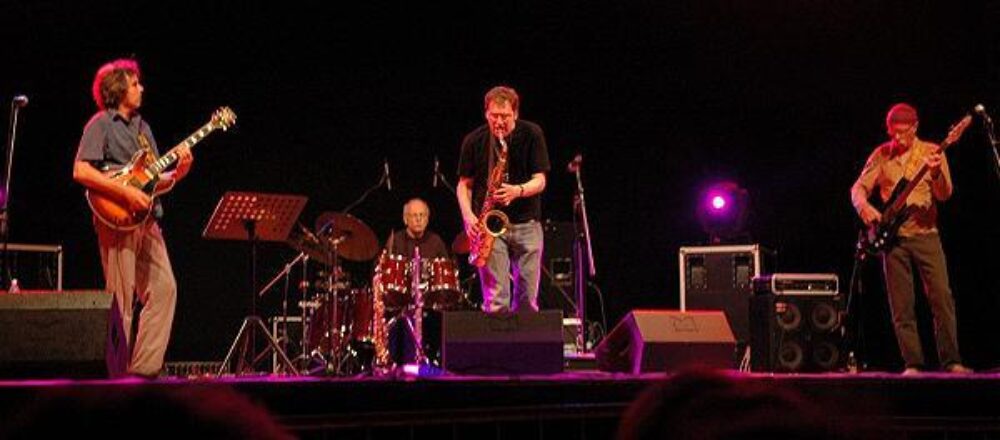
DMITRI EPSTEIN, LET IT ROCK (Israel)
SOFT MACHINE is a legend and an institution of British music, a band who included Robert Wyatt, Daevid Allen, Mike Ratledge, Kevin Ayers, Andy Summers (later of The Police), Hugh Hopper, Elton Dean, Roy Babbington, John Marshall, Karl Jenkins, Allan Holdsworth, John Etheridge, Percy Jones, Rick Sanders, Dave McRae and Jack Bruce among others (Jimi Hendrix briefly jammed with the band in 1968!).
Since its creation in 1966, this band pioneered Progressive Rock, led the 'Canterbury' trend, pioneered jazz-rock, and then guitar-led fusion (launching the guitar god Allan Holdsworth in 1974), influenced generations of musicians. Disbanded in 1978, recreated in few occasions in 1981 and 1984, the band resurfaces in 1999 under the name of SOFT WARE (Dean, Hopper, Marshall, Tippett), having the brief blast under the name of SOFT WORKS (Hopper, Dean, Holdsworth, Marshall) between 2002 and early 2004, and assuming the final shape in the Fall of 2004 under the name of THE SOFT MACHINE (Dean, Etheridge, Hopper, Marshall).
"Getting in and out of sight, the way SOFT MACHINE roll on seems unstoppable, not least because the band's many line-ups allow former members come together in any combination and still sound canonical. Or not so canonical, as the band that visited Zaandam on May 10th, 2005 lean more towards highly charged jazz fusion rather than progressive experimentation - judging by this limited edition concert recording which is only a part of what was played on that night. It starts elegiac, with John Etheridge and Elton Dean popping interplay of guitar and sax on "Ash", gains momentum when Hugh Hopper's bass and John Marshall's drums hit the bottom and clicks into Coltrane-esque groove on a new Hopper's tune, "1212". Yet the groove and the momentum are emotional, while the rhythmic extravaganza is mostly withdrawn from here. Still, exotic ebbing and quirky patterns are retained in classic "Kings And Queens" and let loose on "Big Creese" where the instrument jolt as if to get back to the time the legacy of which this MACHINE fully live up to. Simply a must."
Soft Machine or the Phoenix of British Rock
Band releases “Other Doors”, their 12th studio album today
Silvio Demétrio
Over more than half a century of history, few bands have had as many different formations as Soft Machine. The group originally emerged from the Canterbury scene in mid-1966 as a four-piece consisting of guitarist Daevid Allen, bassist Kevin Ayers, drummer and vocalist Robert Wyatt and keyboardist Mike Ratledge. Daevid Allen was Australian and had problems with his residence permit when returning from a tour in France. The band then became a trio. Allen would later go on to form the band Gong. Soft Machine's first studio album was released only in 1968 with the remaining trio. Since then, there have been 11 studio albums and countless live recordings, always creating a protean and chameleonic sound that has metamorphosed many times with many different formations.
Soft Machine is a polyhedron whose latest face is now updated with a lineup that no longer has any of the members from its beginnings in the 60s. The band's 12th album arrives today in physical stores and on streaming platforms. “Other Doors”. The 13 tracks show a full-bodied and mature sound, characteristic of the jazz-rock outfit that made the band known worldwide. Over more than half a century, Soft Machine followed a path molded in various styles, starting from the psychedelia of their first two albums, the art-rock of Third, their third work to establish themselves in jazz rock from the 70s onwards.
The current lineup consists of Fred Baker on bass, John Marshal on drums, John Etheridge on guitar and Theo Travis on saxophone. According to the band's website, the album marks the retirement of drummer John Marshal. “It's a beginning and an end” It's a pleasant surprise to revisit the band's early years when this line-up features a song composed by Kevin Ayers on the fifth track of the album in a new and up-to-date version of “Joy Of A Toy”. The atmosphere of reference in the band's past is reaffirmed in the release of the double vinyl version that values the cover art signed by designer Carl Glover.
The band's name is a reference to the book by beat writer William Burroughs released in 1961. Composed in part by the cut-up technique (cutting and reassembling texts at random), Soft Machine can be understood as a novel dedicated to what later Michel Foucault will call biopolitics: the way in which control mechanisms invade bodies (hence “soft machine”). It is also impossible not to think of Deleuze and Guattari's Anti-Oedipus and the concept of “desiring machines”. Perhaps there is a clue out there on how to understand the prolific and successive formations of Soft Machine. How can we understand that the band is the same if none of its original members are present on the album that is released today?
The Soft Machine is an assemblage – a concept that Deleuze and Guattari develop throughout their joint work (“The Anti-Oedipus”, “Kafka, For a Minor Literature”, “A Thousand Plateaus” and “What Is Philosophy” ). An assemblage is a flow/cut configuration. Desire permeates all assemblages – it is the force that integrates them and makes them produce something from a machine that cuts a flow. We can understand music as a machinic agency that cuts the flow of silence as the imminence of sound. The Indians have a name for this sound which is pure power. It's called anahata. It is "white noise". The sound that starts at the heart chakra and is in everything. Anahata is consciousness itself as the pure affection of the world. Anahata is also the name of the fourth chakra, the heart chakra. Fundamental sound as a flow of power that intersects with the voice and instruments, producing music. This is how Burroughs' metaphor can be used to dub the music of the English band that manages to remain productive with 57 years on the road and some philosophical notions from the French duo that worked with the idea of assemblages as the foundation of desire as production. It is from this perspective that we can understand Soft Machine as an agency.
“Other Doors” is a record that manages to say something in a new way without losing its identity, as in a narrative by filmmaker David Lynch, who in “The Lost Highway” (“Estrada Perdida”) makes a character become another in an ambience that so it's close to the dream/nightmare. The fact that Soft Machine remains the same despite being different. Each formation is a “door”. There are other doors that lead to other rooms, all like parts of a Kafka castle. When listening, pay attention to Fred Baker's double bass. He says amazing things on this record.
Soft Machine agent :
Management and Agency USA and World Leonardo Pavkovic ,NOA MOONJUNE, noanoamusic@moonjune.com
UK Agency Don McKay rhinoagency@btconnect.com
Europe Agency Jeff Aug, MAXIMUM Booking info@MAXIMUMBooking.com

